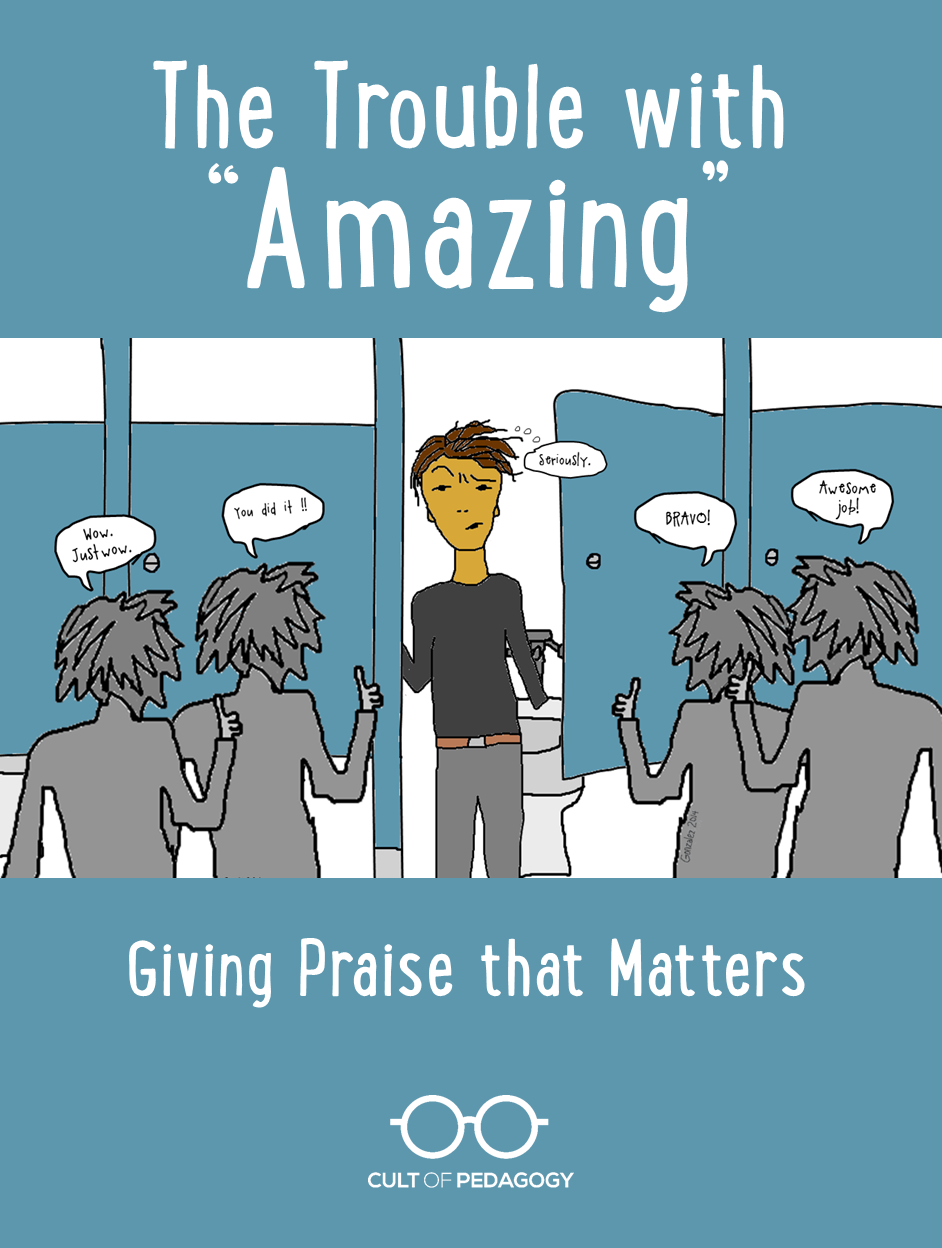
Once or twice a week, I take this cardio weight class at my gym. Every time I go, I usually reach a point where I’m sure I’m about to pass out, throw up, or both. Even though I hate it, I also kind of like it. It feels good to be pushed to your limit.
One day we had a substitute instructor. Let’s call her Kayla. She was about 22. Our regular instructors were definitely older, like most of us in class. But whatever. I thought the age difference might be a good thing. Maybe she’d be extra tough on us.
She wasn’t. Class that day was remarkably, disappointingly easy. And slow. For the first time, I didn’t even break a sweat.
But here was the worst part: Near the end, as we completed a tedious sequence of leg lifts that were so easy one woman was actually texting while she did them, Kayla shouted, “You ladies are amazing!”
Really? “Amazing”?
For a moment, I felt like a very old woman. Like I was taking a samba class at some retirement home, feebly shuffling through the moves, while my vibrant young teacher “encouraged” me toward some sad personal best, a feat that would certainly earn me some hot cocoa and a nap afterward. What I didn’t feel was motivated. Or amazing.
What’s wrong with amazing? Or phenomenal? Or any other superlative we throw around a hundred times a day?
Sometimes, there’s nothing wrong with them. Sometimes they just help us express emotion. If you’re starving, and you just took your first bite of a fresh, hot burrito, phenomenal might be the only way to describe that burrito. That’s not a problem. It certainly won’t bother the burrito.
But if you’re trying to motivate someone—a student, an employee, your child—calling them amazing won’t pump them up the way you hope it will. Not in any lasting way. What’s worse, it could have the opposite effect. Here are three reasons why.
Reason 1: It’s Paula praise.
Back when American Idol had its original lineup of judges, you could pretty much script how it would go when a contestant finished singing: First Randy Jackson said something vague and awkwardly hip. The contestant responded with a kind of wince. Next, Paula Abdul rhapsodized about the singer’s complete and utter perfection. Most contestants looked grateful at this point, but there was something else there, too: impatience. A restlessness to get it over with, because Paula’s feedback didn’t carry any weight. When she finally finished, and it was time to turn to Simon, the contestant would take a deep breath, and every single time, their expression changed: This is the one that counts, it said.
Although Simon Cowell’s review was usually critical, and far too often it was unnecessarily cruel, it actually meant something to the contestants. Everyone likes a pat on the back, but having someone call you amazing when you know you hit a ton of wrong notes just feels wrong. And if you’re handing out amazings like peanuts at a bar, pretty soon no one’s really interested in your opinion.
Reason 2: It’s unspecific.
One night when my college friends and I were getting ready for a night out, someone told my friend Andrea she looked pretty. Instead of just saying thank you, she said, “Why? Why do I look pretty?” We proceeded to mock her for the rest of the night. It became a joke we replayed over and over.
Still, it illustrates something: General praise doesn’t tell us what we’re doing right. In some ways, a vague compliment is a little scary; once the burst of good feeling is gone, the mind wants more. It just doesn’t know how to get it.
As a teacher and a parent, I have probably said “Wow!” or “Cool!” or “Good job!” thousands of times. Honestly, it’s a lazy reflex, a way to give attention without putting in any effort. And sometimes it’s the best I can do. I just need to recognize these phrases for the fluff that they are.
Effective feedback is specific; what Grant Wiggins called “actionable.” If I really want to motivate someone, to make feedback count, I have to tell them what they’re doing right. If my 6-year-old son has just tied his shoe, instead of telling him he’s amazing, I’ll actually build him up more if I say, “You got the knot a lot tighter this time.”
Reason 3: It praises the person, not the effort.
Let’s look at it again: “You’re amazing.” Specifically, the you’re. When praise focuses on the person, rather than their actions, it can actually do more harm than good.
In her 2007 article, The Perils and Promises of Praise, Stanford professor Carol Dweck explains that people belong to two different groups when it comes to intelligence. One has what she calls a fixed mindset: they view intelligence as something we’re born with, something that can’t really be changed. The other group has a growth mindset, believing intelligence can be shaped and developed with effort and experience. Those with a growth mindset are much more motivated to work hard on challenging tasks, because they believe effort pays off. It’s not easy to motivate someone with a fixed mindset: A person who believes they are naturally smart takes fewer risks, “seeking tasks that will prove their intelligence and avoiding ones that might not.” It stands to reason that this principle would work the same way with other qualities too, like creativity, strength, talent, even being a “math person.” If you believe your abilities are set in stone, why bother trying anything new or challenging?
The good news is, the right kind of feedback can shift people from the fixed mindset to the growth mindset. By telling a student she is smart, or talented, or creative, you only reinforce the fixed mindset. What you’re saying is that her success is due to natural ability, not effort. On the other hand, if you focus on the effort, if you say, “You really pushed yourself on that problem and stuck with it until you figured it out,” that describes something she can replicate, something she can keep doing to achieve the same kind of success again.
I’m pretty sure Kayla has very little experience as an instructor. I can’t really fault her for calling us amazing; she was just trying to be nice. But I hope someone shows her a better way. Because I can imagine an alternative Kayla who might start by giving me something truly challenging to do, like a plank. The first time, she’d come by my mat and tell me I needed to lower my hips more, which I would try to do, but it would be hard. The next time she came by, she’d notice the change, saying something like, “Good straight line.” Not an amazing line—I wasn’t there yet. But a good one. I’d know exactly what I was doing right, and what to keep doing.
And knowing something like that? It’s actually kind of amazing. ♥
Join our mailing list and get weekly tips, tools, and inspiration that will make your teaching more effective and fun. You’ll get access to our members-only library of free downloads, including 20 Ways to Cut Your Grading Time in Half, the e-booklet that has helped thousands of teachers save time on grading. Over 50,000 teachers have already joined—come on in.





Jennifer,
Your blog is amazing! Just Kidding. You should check out the character development program of a friend of mine. http://www.darafeldman.com/
The virtues project does just this, in reframing our language with meaningful feedback and reflections for the person we are attempting to motivate. ” I see that you were diligent in working out that problem…” or “The way you completed that task was very purposeful…” It feels a bit odd at first, but it is definitely a plus, changing the language to be specific to the task. When I first worked with her, I thought, if nothing else, it was a good vocabulary lesson.
Thanks so much for posting the link to Dara’s site — I have spent the last 15 minutes looking at her site and the Virtues Project and it’s really interesting. People should definitely check out Dara’s site and http://www.virtuesproject.org. I may do a story on the project some time in the future — looks like they’re doing excellent work!
I have the same feeling with the word “awesome”, generally overused by most people. The Grand Canyon is awesome, your new marker is not. An administrator at a former school could not give specific praise to the staff and made general comments in emails, my favorite one being, “You’re awesome in your awesomeness.” Unbelievable.
Loved your post, it stirred up that “fond” memory for me.
Ugh. I use “awesome” way, way too much. Except I don’t think I have ever doubled up in one sentence. I guess there’s still hope for me! Specific praise to staff is so important–I hope this message reaches admins for that reason as well.
I wish I knew about point 3 when my children were younger.
I generally agree with growth mindset. My issue is that some kids try and try for months and get nowhere, and they end up crushed.
Hi Meg.
You bring up a good point, because a growth mindset is more than just effort. Check out this article about the false growth mindset. I think it points to your concerns.
This is a very important issue that doesn’t get enough attention. I work with parents of gifted kids and talk to them about the difference between encouragement and praise. These children are often told how smart they are or how “amazing” and the result can be paralysis around challenging work or pressure to achieve because their sense of worth then is dependent on their accomplishments; they feel pressure to not disappoint their parents and their teachers. Thanks for this post! I just found your blog on a Facebook share. I’m going to look around!
Paula, I’m glad to hear that these ideas resonate with your own experiences. Although it’s not easy to break the habit of hollow praise, at least there’s a clear path to replace these kinds of comments with feedback that can have a positive impact on student growth. Thanks so much for sharing your thoughts.
You are a talented writer, and by that I mean your blog has an easy, graceful flow and you use English adeptly. I have taught for over 30 years, currently @ a college prep high school.
I completely agree. I however find myself telling students on a daily basis that they are amazing just for showing up and existing. Myself and the students I work with struggle with mental health and suicide risks. To me, encouragement in just being you is a needed frequent reminder. But this article does remind me to acknowledge specific tasks students can improve on.